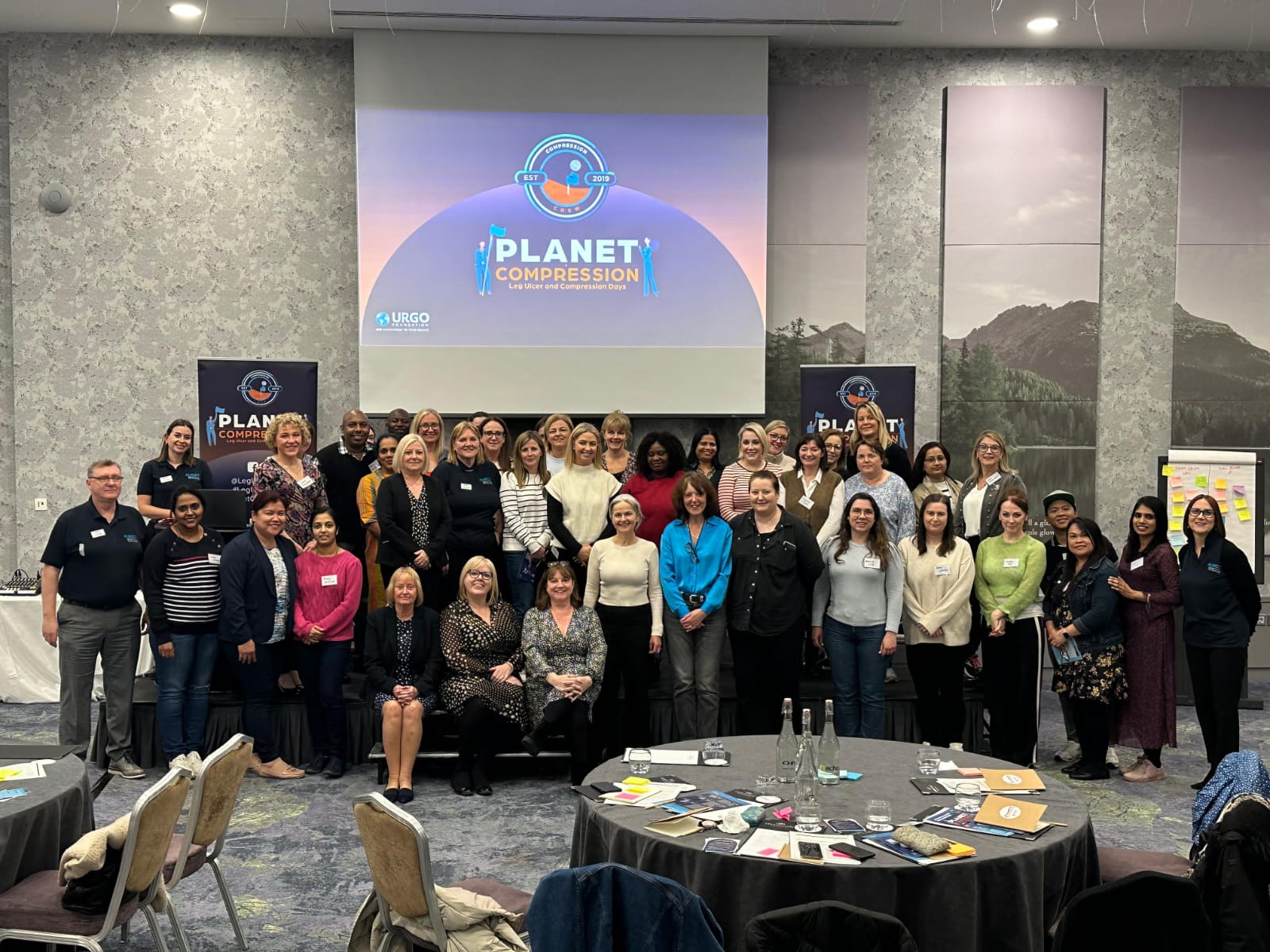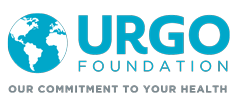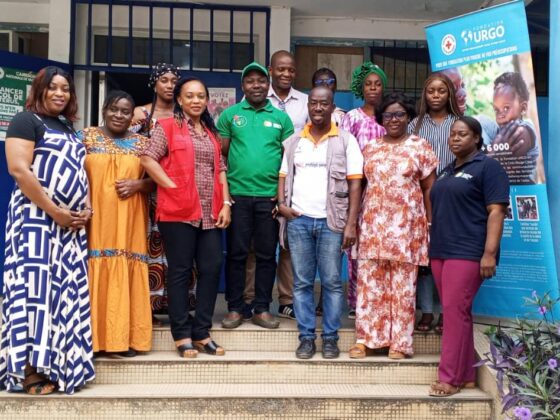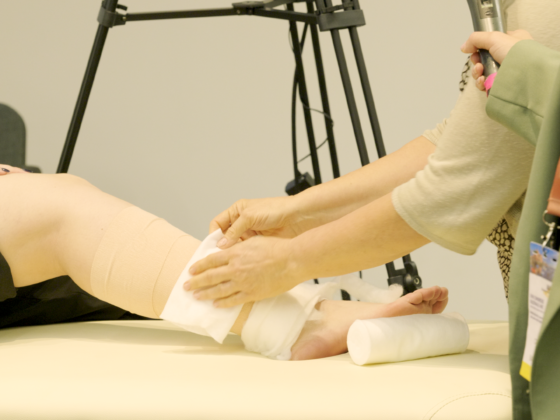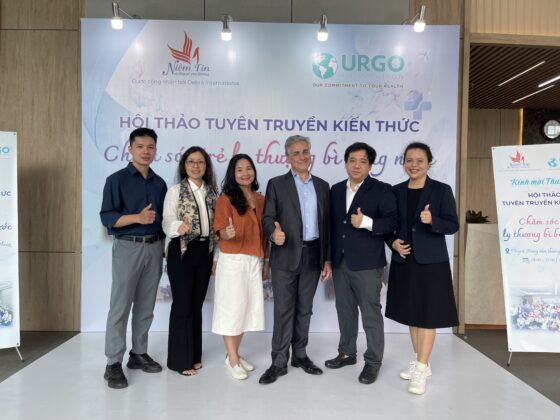Many general practitioners find it difficult to manage venous leg ulcers and would like to receive a training on the subject. Leg Ulcer and Compression Days are organised by URGO Foundation and were created in response to this demand.
The primary aim of this international event is to train healthcare professionals in the management and treatment of patients who are suffering from venous leg ulcers.
From 16 to 19 April 2024, Leg Ulcer and Compression Days were held in Dublin and Edinburgh, bringing together more than 70 nurses. The event was led by a team of 5 compression experts: Dr Leanne Atkin, Dr Caroline Dowsett, Kerry Wardick, Hollie Robinson, Dawn Douglas.
On the agenda: interactive plenary sessions followed by practical workshops
The themes on the agenda were as follows:
1.Understanding therapeutic compression and maintaining consistency in care
The aim of this first theme was to explore the theory and clinical evidence behind why we use compression therapy. Dr Leanne Atkin uncovered the history of compression, how it works and the clinical evidence that supports its use. She also shared about the myths and truths of compression, including the fact that not all compression therapy is the same.
2.Reiterating the importance of dialogue between patient and clinician to promote an effective care partnership
The aim of this second theme was to understand how to keep a patient comfortable in compression. Hollie Robinson and Kerry Wardick highlighted the fact that patient concordance is critical to a successful compression therapy. They also reminded that in order for most patients to be concordant, they need to be comfortable. They also explained practices, knowledges and skills that allow nurses to listen and have the right conversation with their patients, to ensure that the right choices are made for and with them.
3.Exploring the clinical evidence of compression therapy
The aim of this third theme was to build confidence in the safe and consistent application of compression therapy. Dr Caroline Dowsett and Dawn Douglas explained how nurses know if their compression is accurate and consistent. They also emphasized how to build nurses’ confidence. To do so, they reminded the uses of different levels of compression and they reviewed how to choose the right compression for any patient and how to apply compression consistently and effectively every time.
Each session was followed by practical workshops (role-playing, application exercises, etc.).
The overall results were more than positive and encouraging!
Whether in Dublin or Edinburgh, all the participants learned something new. All of them expressed their desire to change their practices because of these days.
“The presentation was very well done, and I was kept engaged throughout. It enabled me to increase my knowledge and confidence in applying compression therapy“, said one nurse. Others praised “the quality of the presentations and the subjects covered”.
In view of this promising success, the URGO Foundation plans to organise other events in several towns in the UK and Ireland. The aim? To cover specific subjects such as the measurement of the ankle-brachial pressure index or the application of a compression bandages.
